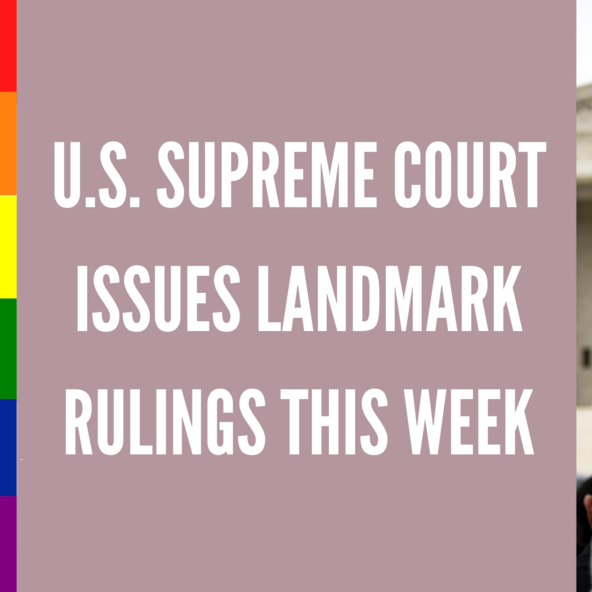
On Monday and Thursday of this week, the U.S. Supreme Court issued rulings that handed important victories for LGBTQ individuals and Dreamers, undocumented individuals who came here as children.
In Bostock v. Clayton County Georgia, the Supreme Court held that discrimination against LGBTQ people in employment is prohibited under the Title VII prohibition against discrimination on the basis of sex. Writing for the majority, Justice Gorsuch declared:
An individual’s homosexuality or transgender status is not relevant to employment decisions. That’s because it is impossible to discriminate against a person for being homosexual or transgender without discriminating against that individual based on sex.
This decision is the culmination of decades of struggles by LGBTQ people to get recognition for what, ACLU attorney Chase Strangio (who was the lead attorney representing two of the plaintiffs) called, “an incredibly basic proposition, that you shouldn't be fired from work just because of who you are.”
The impact of this decision will be felt in other areas of federal law that are governed by the Civil Rights Act, including health care and education. This could mean, for instance, that a recent rule proposed by HHS that would (if implemented) allow for discrimination in the health care system against LGBTQ individuals (reversing an Obama Administration rule) is unlawful. Additionally, a HUD proposed rule discriminating against trans people in homeless shelters could also face tougher scrutiny.
As meaningful as this decision is, it doesn’t eliminate the need to fight for the rights of LGBTQ individuals. All one has to do is read about the epidemic of violence against transgender and non-binary people (which disproportionately affects black trans women) to know that there is much more work that needs to be done.
Then, on Thursday, in Department of Homeland Security vs. Regents of the University of California, the Supreme Court (in a 5 to 4 decision) found that the Trump Administration’s attempt to terminate the Deferred Action on Childhood Arrivals (DACA) program was arbitrary and capricious. (The Obama Administration created DACA to grant temporary status to undocumented young adults who were brought to the United States as children; this status shields them from deportation and allows them to obtain work permits It does not provide a path to citizenship.)
Although the DACA decision is a procedural one (the Court did not find that the termination of the DACA program was inherently unlawful, just that the reasons for the termination were arbitrary and capricious and failed to account for the justifiable reliance interests of DACA beneficiaries), the decision represents a huge victory for these Dreamers. As the National Immigration Law Center (counsel for the plaintiffs put it), “[t]he Court’s decision to overturn the Trump administration’s termination of DACA is a monumental victory for nearly 700,000 DACA recipients, who can now continue to safely live, work, and study in the United States.”
As with the Title VII decision in Bostock, the DACA decision is hugely important but is only one step in the struggle to redeem the rights of our immigrant communities. Whether it is public charge, the Muslim ban, the despicable child separation policy or recent Trump Administration executive orders designed to stop immigrants from coming into the country, this Administration has repeatedly acted with hostility towards immigrants. We must continue to fight all of these unjust policies and protect our immigrant neighbors.
Legal Aid celebrates these Supreme Court victories with our LGBTQ and immigrant colleagues and members of our client community. And we pledge our support for the continued work to make justice real for these and other marginalized groups.




